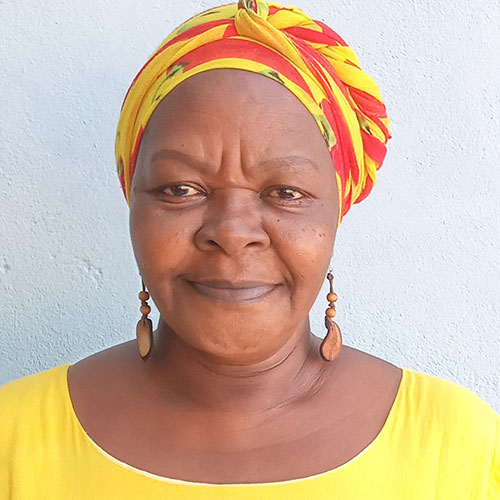History and social context of the “Hoju”, an institute founded by black women living in Morro da Mangueira and Providência
Hoju Institute has been in operation since 1998 and was formally established in 2012. The project's construction, development, and foundation were accomplished by black women in the community


Hoju Institute has been in operation since 1998 and was formally established in 2012. The project’s construction, development, and foundation were accomplished by black women in the community. Erica Portilho, also known as as Kaká Portilho, the head of the institute, talks about their purpose.
“Hoju Institute has the purpose of generating a positive image of Afro-indigenous people, understanding the structural and systemic problems of the anti-black base of Brazilian society, and all the traumatic legacy that racism left us, which is real. The institution was founded with the intention of displaying this powerful location as well as the civilising and cultural matrices that shape the indigenous Afro being”
Institute methodology
According to Kaká Portilho, the work developed is divided into four priority axes, which are the environmental, the economic, the educational, and the political, all connected transversally by the cultural axis, with a focus on the Afropandoramic culture and social work based on the experiences of the afro-indigenous societies, from which several projects were developed.
In the economic sector, Hoju has the “Nêga Rosa Negócios” project, which aims at professional qualification and development, primarily in the creative economic area, aimed at entrepreneurial people, with a focus on black women, indigenous people, residents of slums and peripheries, as well as the “Negrócios” project, which works as part of training in the areas of business modelling, marketing, fundraising, and formalisation
On the environmental side, the Cosmo Organic school of traditional medicine was founded within the João Luiz Alves Socio-educational Unit – DEGASE, located on Ilha do Governador, RJ. This school offers a range of work-related training in agriculture in partnership with the Programa Jovem Aprendiz (Young Apprentice Program), which is related to animal welfare, horticulture, gardening, landscaping, and social issues involving families and food security, among other activities.
This work is aimed at adolescents in compliance with DEGASE’s socio-educational measures. Also in the environmental area, the project has the Seed Bank, which uses the memory of the plant to tell the Afro-Indian history of Brazil, and the seedling bank. The seedlings are taken to spaces and people who want to restore the land so that it can produce again and restart history there. The soil of these spaces is prepared by implementing a system that combines animal husbandry with the production process, which is why we call it Organic Cosmos.
In the Education spectrum, several preparatory courses are held for black researchers who want to enter Postgraduate, Master’s, and Doctoral degrees. The School of Mother Languages was also created through experiments with the language of Afro-indigenous culture, literacy, and reading mediation. A cyber library was built in Morro da Mangueira so that people have access to a space dedicated to the appreciation of Afro-indigenous culture, with a specialised collection, and an EJA (Teaching for Youth and Adults) is being implemented in the same place.
In the political scope, work methodologies are developed for civic education. This work is divided into three parts: the legislative, the executive, and the judicial. The result of this work has become a game in which children, teenagers, and adults are involved via cell phones. A strong effort is also made to train influencers for the construction of public policies in several areas, such as education, culture, and social assistance.
The target audience is children, youth, and adults living in slums and on the outskirts, mostly Afro-Indians, coming from public schools.
Hoju Institute offers legal advice in partnership with law firms, mainly with the help of black lawyers, therapeutic care for black women and men (age group 25 to 50 years), conversation circles, and the delivery of food handouts and food cards.
The institute invests in information and improvement of most employees, who are CLT (hired within Labour Code) workers.
Numbers
In the master’s and doctoral programmes, Kaká Portilho says that 600 people benefited. Recently, the Institute acquired a platform where information is being stored so that everyone can have an idea of the real impact that the institution has had until today. She says that some 30 thousand people have already benefited.
Project maintenance
Kaká Portilho talks about the financial maintenance of the Institute
“There are several forms of maintenance. Individuals who have received benefits in the past have become ongoing donors to the institute; IPEAFRO (Institute for Research and Afro-Brazilian Studies), makes a monthly deposit to help us with costs; and we raise funds through direct or indirect, public or private-public notices. We were already assisted by Itaú Social in 2021, with a small contribution, and sporadically we receive products and services; we have a self-sustainability part and the community gets involved and helps us when needed.”
Discover all the projects of the Hoju Institute in full.
Meet the members of the Institute by clicking here.
Donate to Hoju Institute by clicking here
Follow the institute on Facebook and Instagram.
Check here for the origin of the name “Hoju”.



